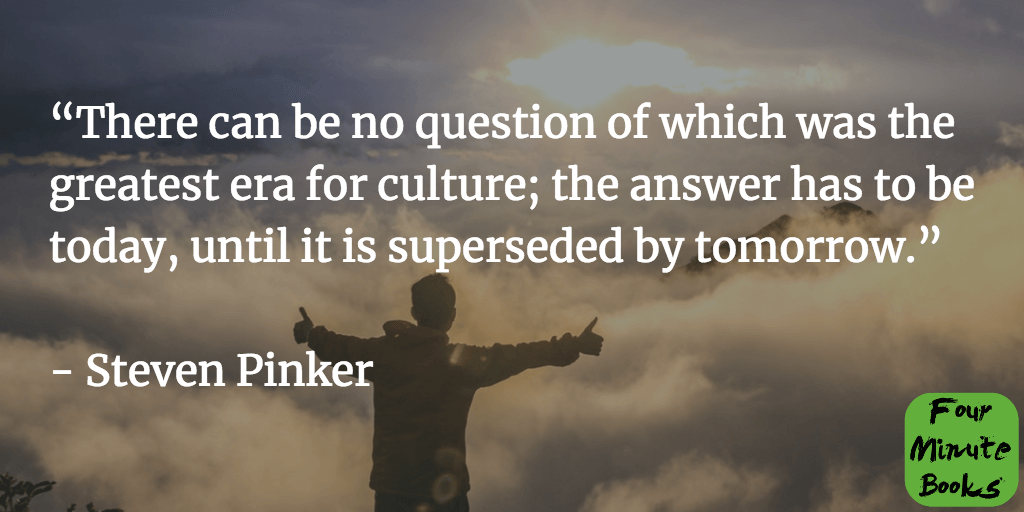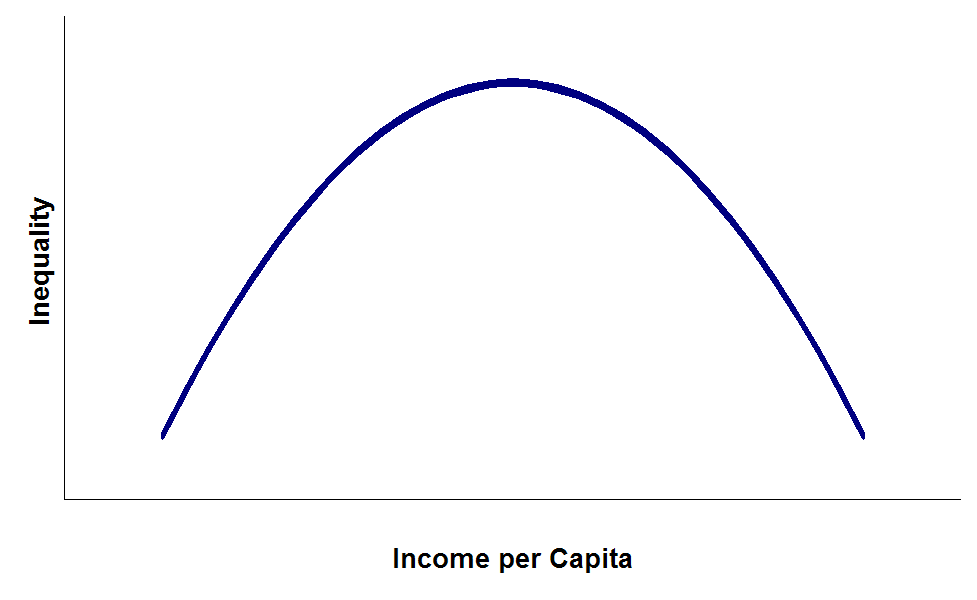1-Sentence-Summary: Enlightenment Now describes how the values of the Enlightenment, science, reason, humanism, and progress, keep improving our world until today, making it a better place day by day, despite the negative news.
Read in: 4 minutes
Favorite quote from the author:

Audio Summary
Listen to the audio of this summary with a free reading.fm account*:
Nowadays, there are many ways to spread your message. If you have something unique to say and give it the right spin, word can quickly travel around the world. Sadly, the most popular spins are negativity, anxiety, and fear. Playing on our ancient instincts, sensationalist headlines grab us right in the gut and so we click.
That’s the main reason I choose to frame most things in a positive, optimistic view. I know I’m just a small fish, but luckily, there are others helping make positivity louder. Steven Pinker is one of them. He’s written over a dozen books on various subjects, usually looking through the lens of science, such as The Language Instinct. His latest work, Enlightenment Now, might be his finest.
Doubling down on an idea he first explored in The Better Angels Of Our Nature, namely that our world is a better place than most people think, Bill Gates dubbed Enlightenment Now his new favorite book of all time. In it, Pinker uses data and storytelling to show us that the values of the Age of Enlightenment, science, reason, and humanism, still continue to improve our world.
Here are 3 lessons, one from each category:
- Wealth has increased not just in the West, but around the globe, all while decreasing poverty and inequality.
- The United Nations bring humanism to a global scale, which has made our lives safer than ever.
- We still have problems, such as AI, terrorism, and the environment, but we must face them with reason.
Despite what the news would tell you, the human story of the 21st century is one of progress, not misery. Let’s find out why!
Lesson 1: Enlightenment has increased wealth while reducing poverty and inequality – and science can prove it.
Just 200 years ago, over 90% of the world’s people lived in extreme poverty. Today, that share is less than 10%. That’s because from 1820 to 1900, global income tripled. 50 years later, it had tripled again, and a third time by 1984. Nowadays, even poorer, less developed countries, like Rwanda or El Salvador double their income every 18 years. Richer countries do so every 35 years.
A common argument against the benefits of global income growth is that “only the rich get richer.” That’s nonsense, as not just the decreased share of poverty shows, but also the scientific known as the Kuznets curve. Developed by Simon Kuznets in the 1950s and 60s, it explains that as income grows, inequality only initially rises, then peaks and goes back down.

Another scientist, economist Adolph Wagner, found more evidence to prove this point. Wagner’s law states that as a state’s wealth rises, it spends more on social benefits programs. In Europe, for example, only 1.5% was used for a poverty safety net 100 years ago. Today the average of states’ budgets reserved for it is 22%.
Lesson 2: Thanks to the United Nations, a humanist movement, life is safer around the globe than ever before.
Today’s world is of course not perfect. There are civil wars in Iraq, Afghanistan, Sudan, and Syria still going on today. However, less than 100 years ago, war used to be the normal state the world was in. Just during WWII, over 60 million people lost their homes, more than even the peak global refugee numbers we have today.
And not just that. If you watch Pinker’s TED talk on Enlightenment, you’ll see him quickly cover a bunch of charts, showing humans are safer all around. There are fewer accidents, natural deaths, crimes, wars, and less political oppression than ever before.
One of the many movements behind these trends is the United Nations. With its inception in 1945 came the Universal Declaration of Human Rights, a humanist document ascribing every person on earth certain, non-negotiable privileges. Today, 193 nations are part of the organization and it continues to help international relations flourish, for example with trade agreements, dispute negotiations, and travel rights.
Lesson 3: Today’s critical issues, like terrorism, AI, and the environment, must be faced with reason, not conspiracy theories and pessimism.
The reason most people are afraid despite all these good news is that the media who report them don’t favor positive stories. You never hear that 100,000 people have made it out of poverty, but a terror attack is an event they can cover. Speaking of which, terrorism is one of Americans’ greatest fears. And yet, they’re more likely to be killed by a lightning strike or the sting of a bee. Globally speaking, your chances of dying in a car crash are 125 times higher.
This isn’t to say we can neglect these threats, but we mustn’t blow them out of proportion. Looking at the world rationally is one of the most valuable skills you can have. Another popular topic reporters use to fan fear is artificial intelligence. It’s true that we must develop it carefully, but it’s nowhere near becoming a threat and given our past breakthroughs, don’t you think we’ll have dozens upon dozens of fail-safes built in?
Lastly, people like Donald Trump love to use conspiracy theories to push their own narrative. But climate change is a measurable fact! In order to stop global warming from exceeding the two degrees celsius barrier, we must cut emissions by 50% by 2050. That’s a tall order, but only reason and optimism will help us get there.
As it has been for the past 300 years, human civilization will not stop making progress.
Enlightenment Now Review
Enlightenment Now is a much needed book in an age of fake news, media manipulation, and rising populism. It shows us that not everything is as bad as powerful people with their own agendas want us to believe. Moreover, it gives us a template for embracing today while continuing to move forward. Science, reason, humanism. I highly recommend you get familiar with the ideas in Enlightenment Now, so that together we can all make progress.
Who would I recommend the Enlightenment Now summary to?
The 14 year old who gets most of her news from Twitter, the 59 year old Republican politician, who’s not sure what to make of climate change, and anyone who feels sad after browsing around on social media.
Last Updated on August 15, 2022